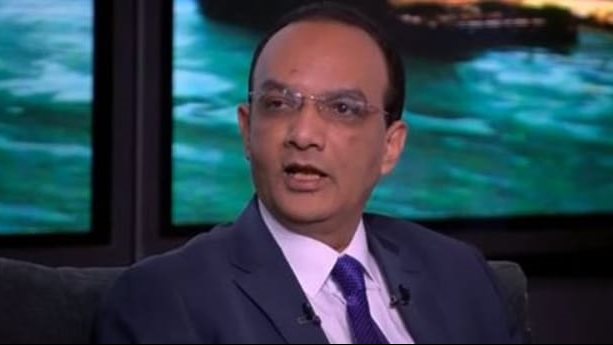"Foreign Policy":Palestine’s Broken Leadership

As the Obama administration winds down, one of its great regrets is, undoubtedly, its failure to achieve a breakthrough in the Israel-Palestinian conflict, much less a peace settlement. The personalities involved, on the part of the United States and the Palestinians, are the primary reason for this failure. In short, the Obama team won’t accept the reality that the Palestinian leadership — both parts of it — is anti-democratic, corrupt, and unable or unwilling to pursue peace. Mahmoud Abbas, who rules the West Bank via the Fatah party’s control of the Palestinian Authority, is weak and unable to move his party to peace; Hamas, a terrorist organization and the party that rules Gaza, is aligned with terrorists and their state sponsors, who are determined to neuter the United States in the region and destroy the state of Israel.
Israel isn’t the problem. Over the last 16 years, it has twice offered reasonable peace proposals that would have traded land and a state in exchange for peace and a recognition of its right to exist. Such proposals are normal for warring parties, and Israel has succeeded in this approach before with neighboring Arab powers. The problem is that the Palestinian leaders have twice rejected these proposals.
We can also dispense with the notion that Prime Minister Benjamin Netanyahu and his policies are to blame for the impasse. Requiring a state to give up all its bargaining leverage before the negotiations begin — as the Palestinians demand, with Secretary of State John Kerry in agreement — is a non-starter for successful negotiations. An administration that prides itself on its diplomatic bona fides and skill should know better. Netanyahu has embraced the two-state solution that his predecessors adopted, even if he questions its wisdom. He is not the only one questioning it these days.
No: the problem is the people who run the Palestinian territories, and Kerry and Obama, who play an enabling role by behaving as though these leaders are actual peace partners.
The Obama administration will end the way its predecessors ended their terms on this problem: hearts broken over the lack of resolution to the conflict. The administration has no excuses for its naiveté, given all the recent history it has witnessed. But it can salvage some dignity while taking a step in the right direction for peace by stating clearly and boldly what the problem is: Israel has no genuine peace partner. Until the Palestinian leaders change their approach or are replaced by those who have done so, there will be no resolution; further, until that time, Israel deserves the support of those states that desire peace and a just order.
What should the Obama administration make clear?
Authoritarianism
The administration could start by acknowledging that both Hamas and the Palestinian Authority are dictatorships. Neither regime enjoys democratic legitimacy; they are permanent revolutionaries (at least parts of the PA are), which simply means they are not finished using violence to get what they want. Taking a risky and bold step, the Bush administration supported parliamentary elections in the territories in 2006, which Hamas won. The United States refused to recognize a terrorist organization’s control of the territories, but Hamas wrested control of Gaza violently from the Palestinian Authority by force of arms, established a dictatorship, continued a cold war with Fatah, and aligned with Iran to launch terror strikes against Israel and Egypt. And, like true revolutionaries, for nine years Hamas has refused to hold subsequent elections. They were never looking for a democratic and peaceful outcome; rather, they simply took advantage of a circumstance to consolidate power. The Palestinian Authority has done likewise. Abbas’s term ended in 2009, yet no elections have been called. He rules in the usual style of those who fear their enemies, as well as their own allies, if they should risk relinquishing power.
And how do they rule?
Corruption
First, as paragons of corruption. Abbas’s regime oversees a system where the greatest economic harm done to the Palestinians is not by Israel’s fences and gates, nor its intermittent blockades designed to combat terrorism, but rather the Authority’s own corruption and mismanagement of donor funds. Fatah operates the Authority as a vehicle to make money off a captive people, just as dictatorships have done since time immemorial. Hamas rules similarly. Numerous grandees of the party and government live off huge donations from the Arab world, and have even taken funds from terrorist networks like al Qaeda while the people live in abject poverty. Hamas controls everything, so getting rich is easy if you have the power: Simply skim off what you want from the billions in donations, and at the same time force much of the economy to go underground so officials can charge exorbitant taxes on the smuggling.
Terrorism
Second, the rule of the dictators in Palestine is a boon to terrorists and those who want to destabilize Israel and the Arab powers trying to work with the United States. Iran supports Hamas, as the latter engages in intermittent strikes against Israel and Egypt, and even the Islamic State has a valuable relationship with Hamas in its conflict with Egypt. Abbas’s government is more feckless in its confrontation of terrorism. It has ineffectively dealt with the recent “stabbing intifada,” but such a distinction matters little when the outcome is still harm to Israelis and the climate for peace negotiations. Legitimate peace partners for Israel would not be engaged in efforts to destroy Israel, or the governments of Jordan and Egypt; capable peace partners would not be unable to control terror emanating from their own territory.
A question arises: What do the people ruled in this fashion think of all of this? Unfortunately, there is evidence that far too many of them are supportive of the external harm their rulers do, even if they do not like being abused and kept in poverty. But short of a culture change, a leadership change arguably would do much to turn the tide.
It is a depressing reality we face — and have faced since 2008, when it became impossible to ignore the real problem. The efforts of Clinton, Bush, and even Obama and Kerry (though the latter don’t acknowledge it), have demonstrated clearly that the obstacle to peace is the leadership of the Palestinians. One group engages in terrorism itself as it rules corruptly and dictatorially; the other can’t agree internally to combat terrorism and also rules corruptly and dictatorially. They keep their people desperately poor and roiling with resentment against perceived enemies. They are the very opposite of legitimate and capable peace partners. No lasting and just peace has ever been achieved with such partners.
So what is to be done? Palestine is a failure, committed to an ongoing revolution. And failed political entities, and failing revolutionary causes, cannot negotiate peace with their neighbors when they themselves are not at peace with each other. Even if we don’t like the prospect of a frozen conflict with force being the only way to prevent the worst harms, such is better than pretending that millions of people are able to self-govern in a state of their own, when in reality they are pawns to brutal or feckless dictatorships.
Some students of international relations never tire of saying that the nature of a regime is irrelevant to the prospects for peace — that power and interests are all that matters. Well, power and interests do matter greatly, but so does who rules. Players who use their power to oppress and assault their own people and foreigners because that is their interest, or who are so powerless because of internal corruption and wrangling that they cannot act in the interest of their people, represent regimes that are themselves the obstacles to peace because of their own choices. No negotiations will make Hamas change its goals or put some backbone into Fatah. New leaders are needed who will embrace new interests and acceptable ways to use power. In short, democratic leaders who represent the best interests of the Palestinians are needed, but right now we have the opposite.
So for now, telling the truth about Palestinian leaders is a long-needed step in the right direction.



















